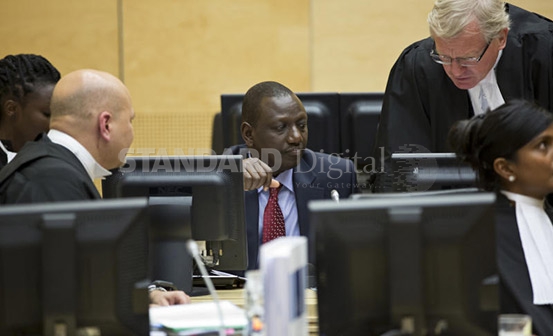×
The Standard e-Paper
Fearless, Trusted News

The International Criminal Court (ICC) may have given away their judgement on the motion of acquittal filed by Deputy President William Ruto and set to be issued on Tuesday.
Analysts and keen observers of the court say various actions, missteps and pronouncements of the court in the last two weeks signal continuation of the case for Ruto and his co-accused Joshua arap Sang.